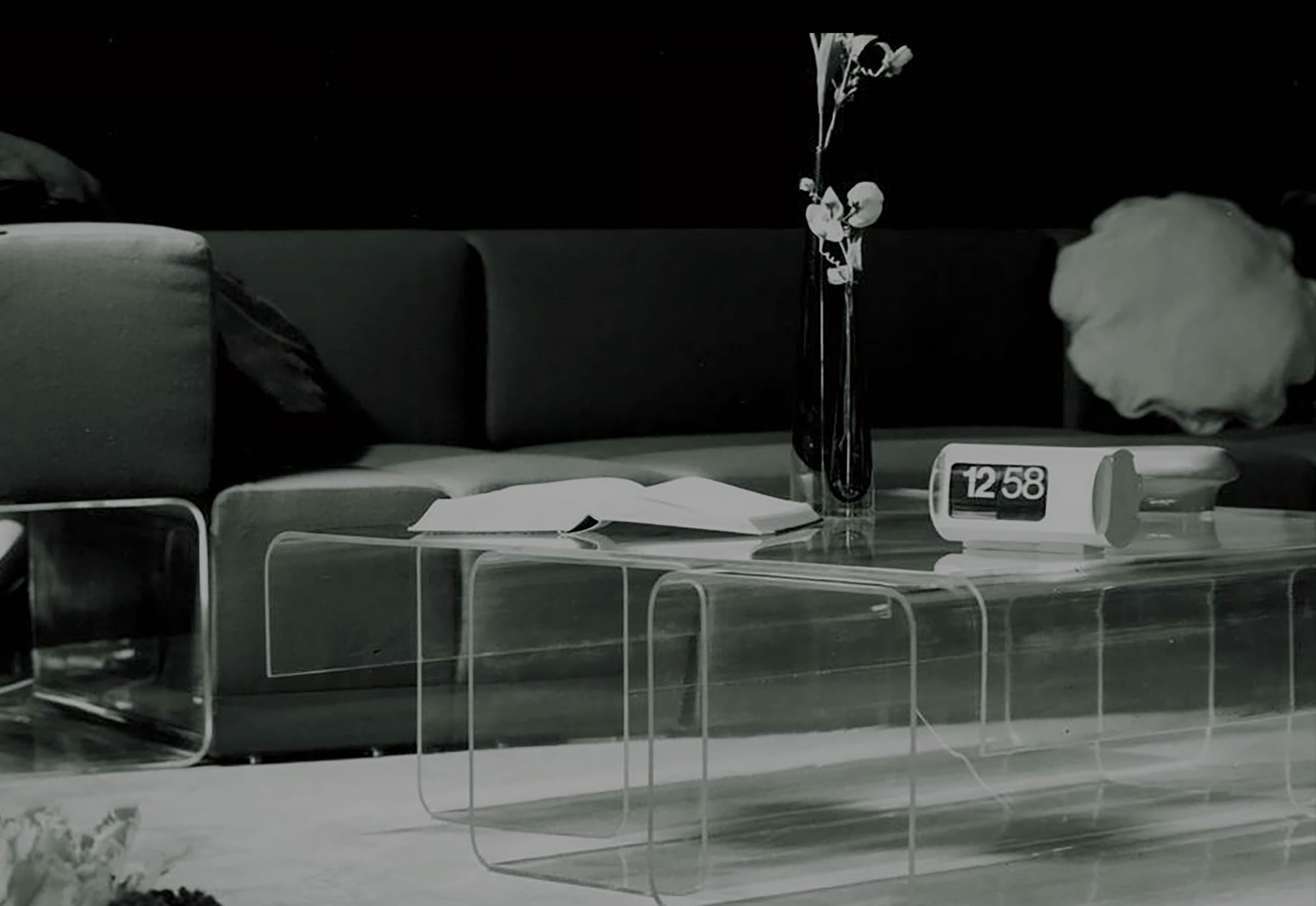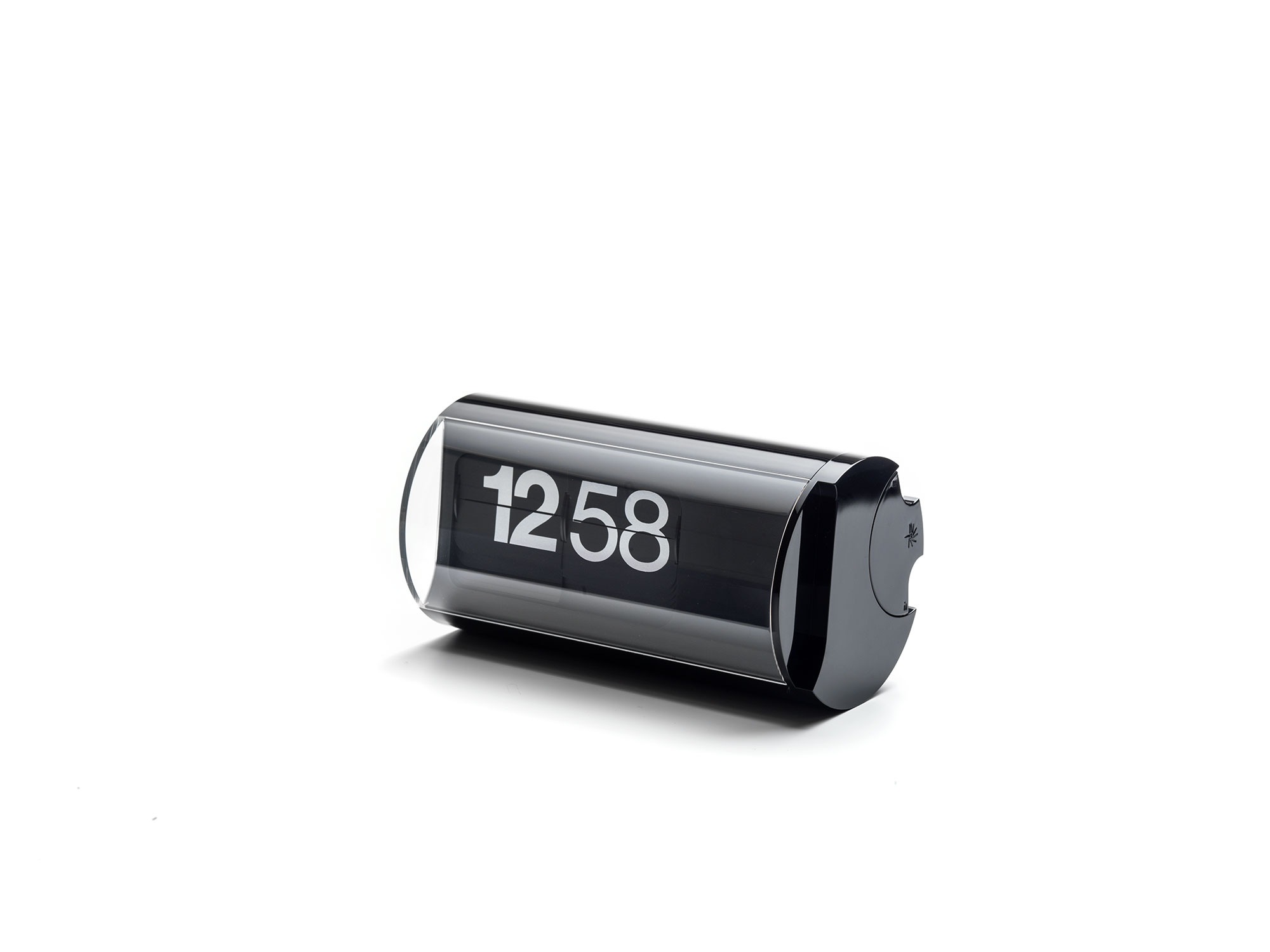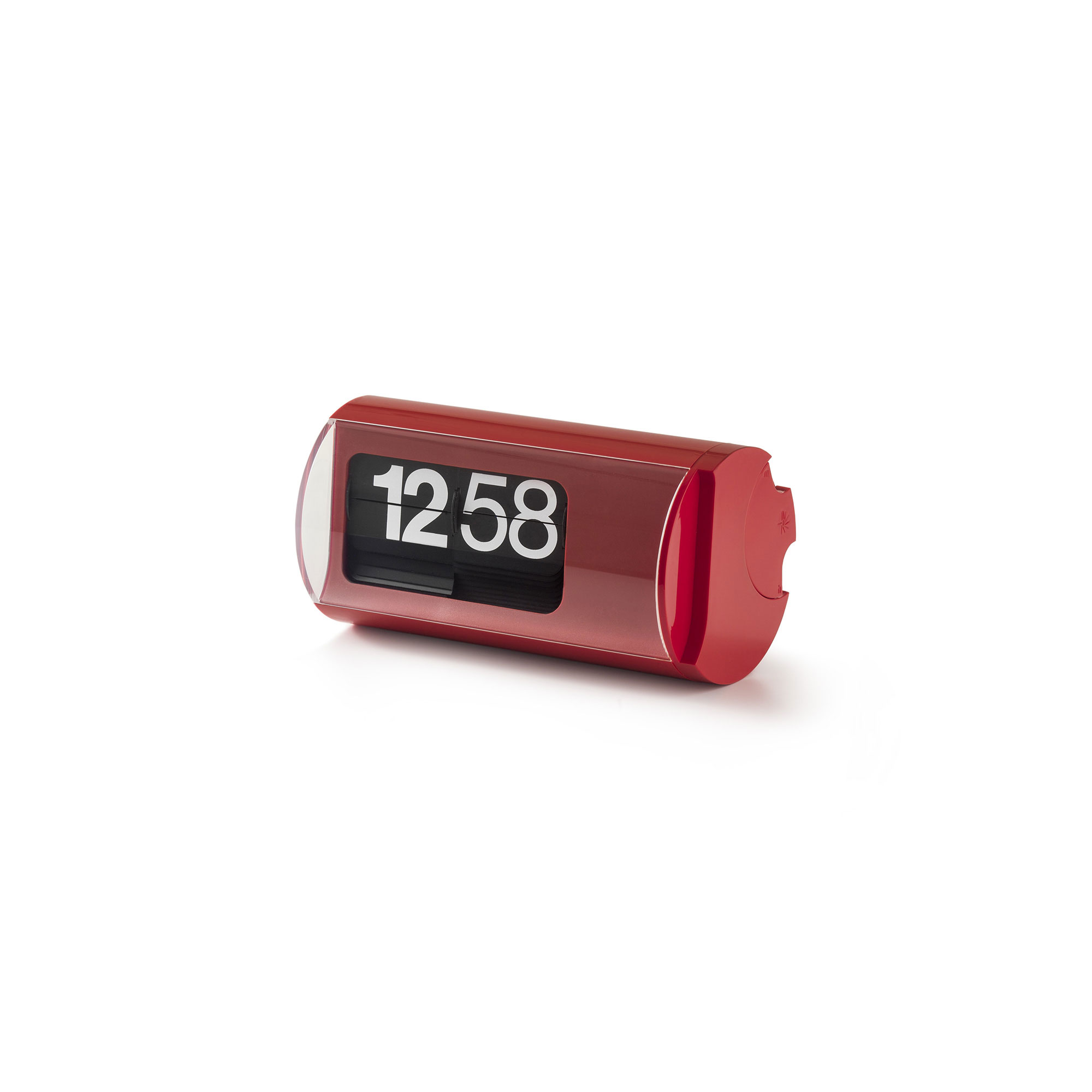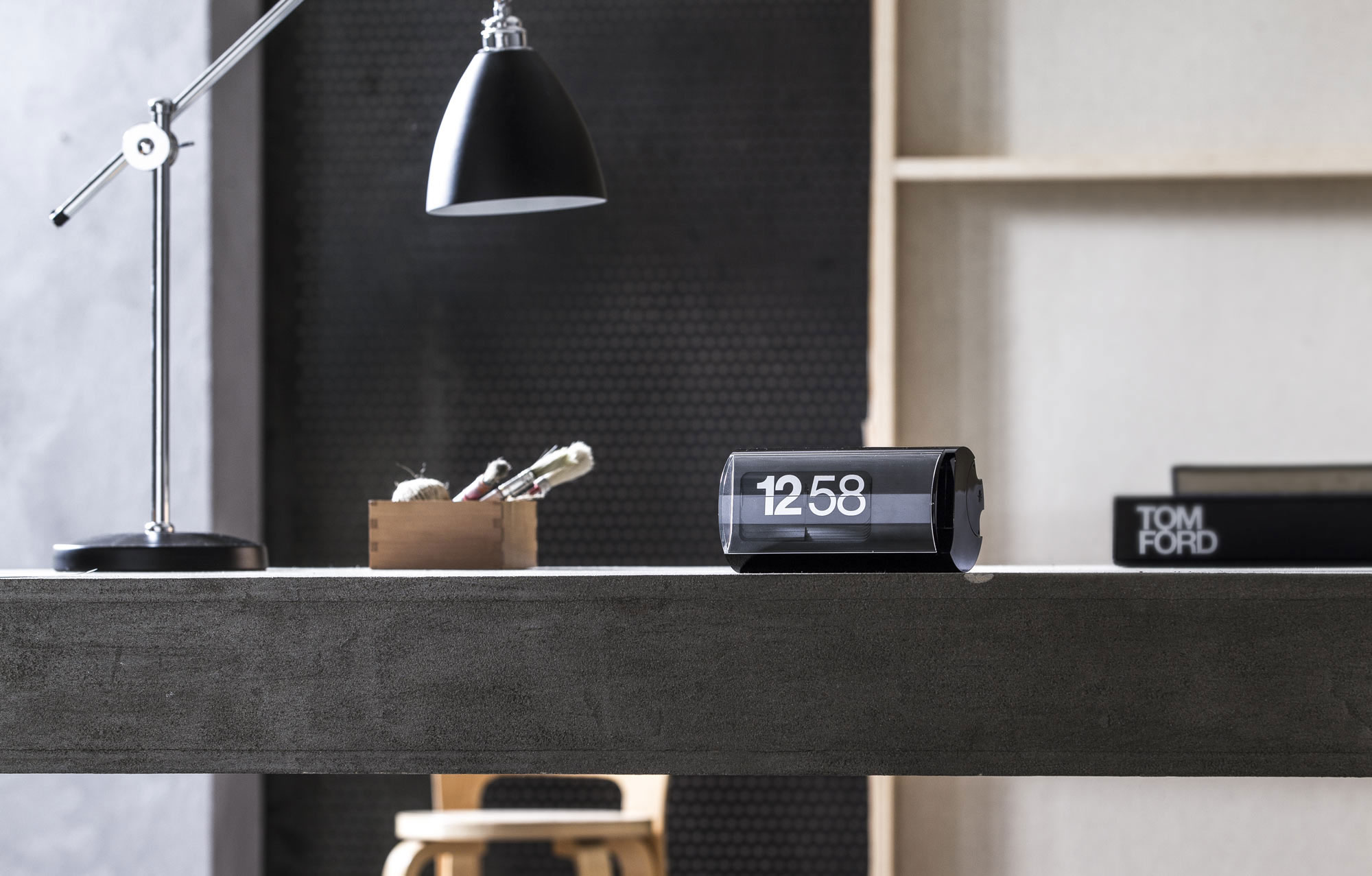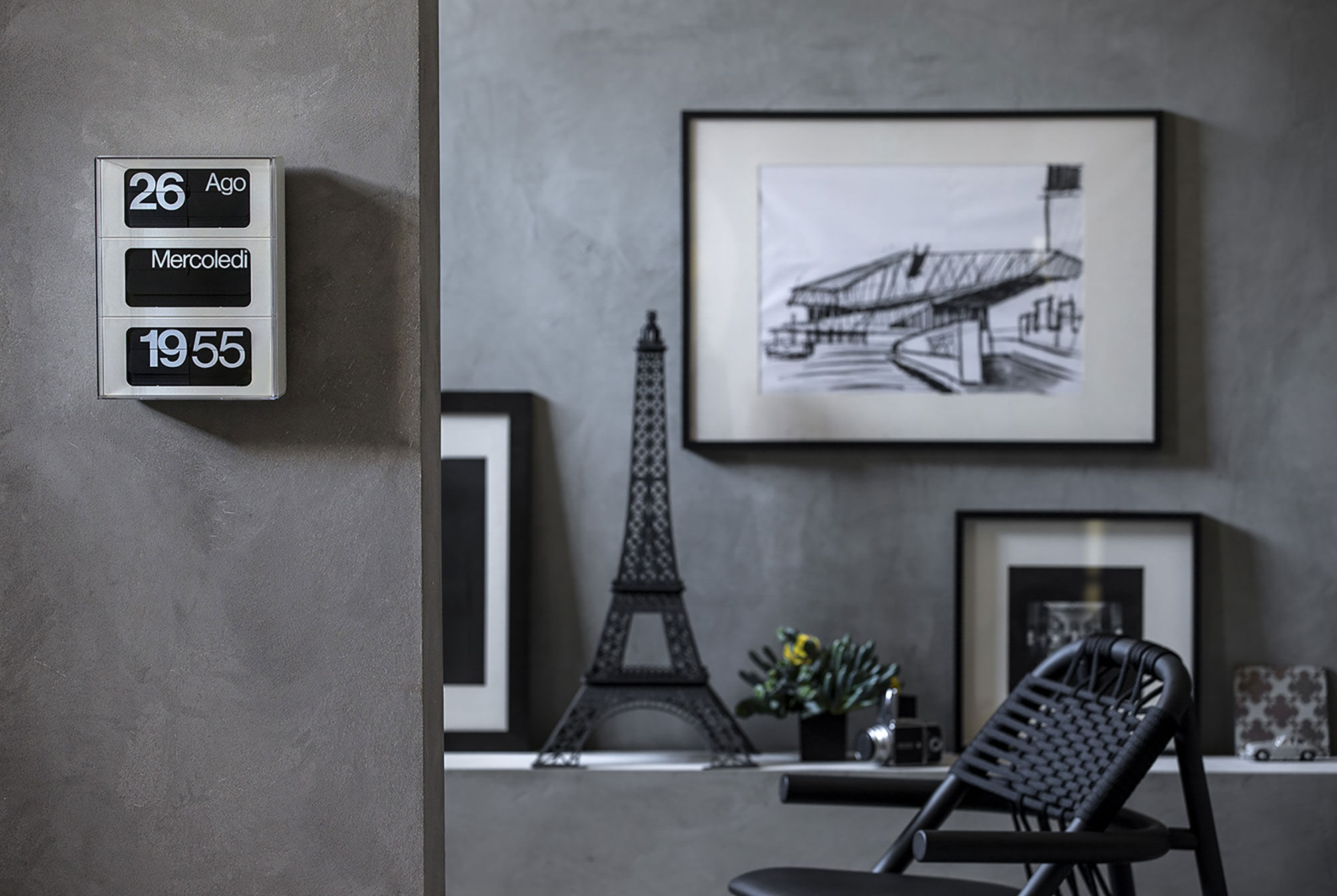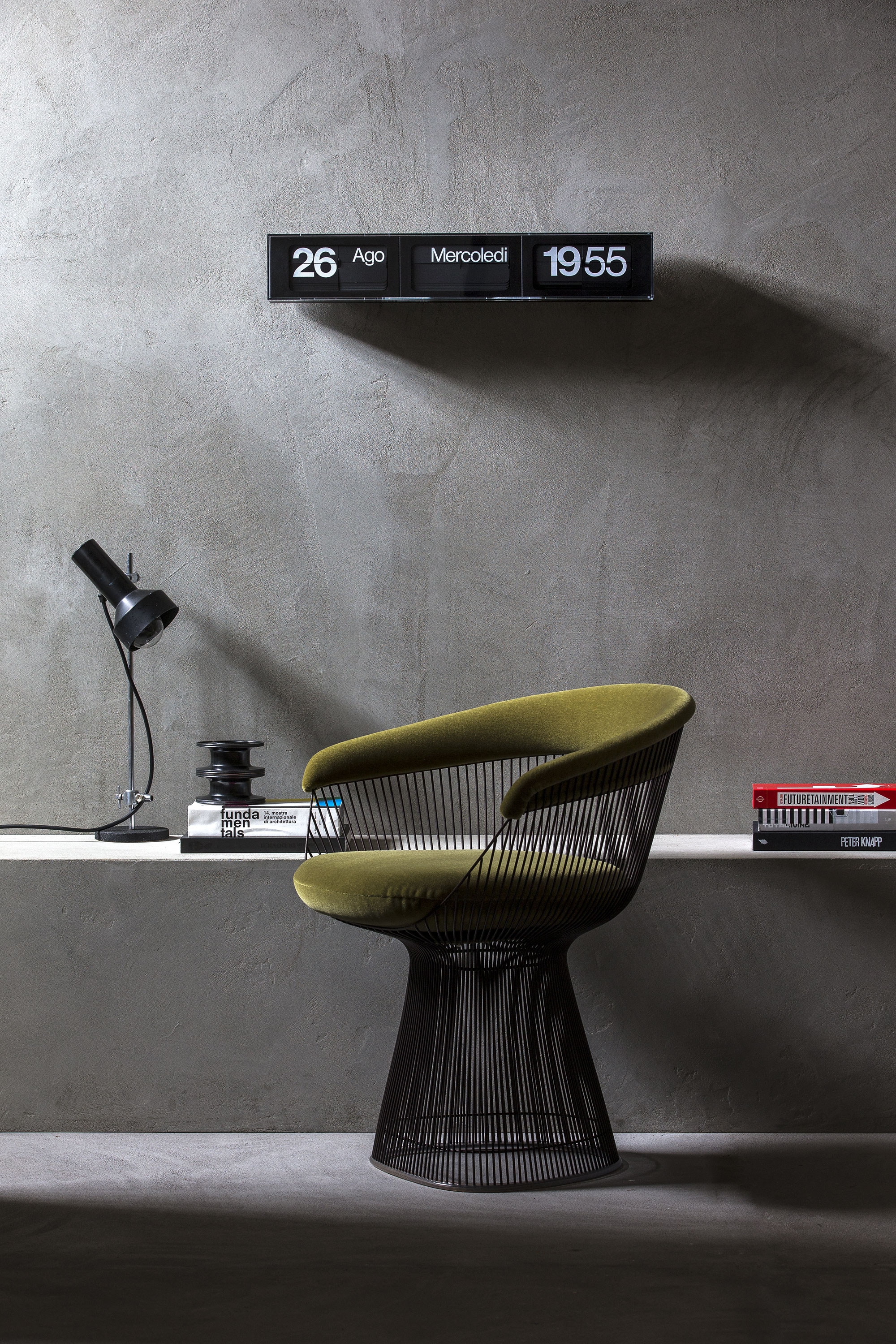A historic brand that embodies the best of Italian design and innovation.
Not many companies can say that they have reached the venerable age of 300 years, but then again, not many companies come close to the rich history of many Italian brands. Solari di Udine is one of the best of them. Established in 1725 (yes, really) in the small mountain town of Pesariis in Italy’s Carnia region, the Fratelli Solari company originally made tower clocks and wall clocks. Brothers Remigio and Fermo Solari decided to break away from the mother company in 1948, when they founded Solari Udine. Since then, they have continued to produce public timepieces, including ground-breaking clock terminals and public information displays used worldwide from the US to Japan, and have also branched out into the home accessories sector with a series of innovative, modern clocks and an iconic Italian flip clock.
In 1956, Solari cemented its place in the history of Italian design with a prestigious Compasso d’Oro award for the retro Cifra 5 clock designed by Gino Valle. That same year, they created the world’s first railway information display, for the Liegi train station. Fast forward to 1962, when Solari won the second Compasso d’Oro, this time for the Alphanumeric Teleindicators created for airports and railway stations, also designed by Gino Valle. A few years later, the brand also introduced an alarm clock. In 1998, Solari acquired the historic Fratelli Solari company, effectively reuniting the family after 50 years apart. Another milestone for the brand came in 2004, when a Solari custom display appeared in Steven Spielberg’s film The Terminal.
More recently, the company has renovated its production facilities to make them more energy efficient. A world leader in manufacturing of industrial design clocks and information display systems, Solari Lineadesign continues to innovate and break barriers. It can achieve this thanks to a dedicated technical staff and in-house hardware and software development.
Iconic clocks that represent the essence of Italian 20th century design.
Designed in the 1960s, the Solari Udine Cifra 3 Italian flip clock is still one of the most iconic timepieces of all time. World-renowned architect and designer Gino Valle created it in collaboration with Belgian inventor John Myer. The minimalist desk clock features a forty-flap system with digits and letters, which was ground-breaking at the time. Today, Cifra 3 is the smallest direct-reading clock still in production. Merging technology and innovative design, the timepiece has become Solari’s stylistic trademark.
The table clock has no hands. Instead, it shows the time by flipping rollers, minute after minute, with a different typeface for the hours and minutes. Museums that have included Cifra 3 in their permanent collections include the Museum of Modern Art in New York and the London Science Museum. Unchanged since 1966, the clock comes in classic white and black as well as brighter red and green colors. To produce each Italian flip clock, skilled craftspeople assemble the flaps by hand in a specific sequence. Apart from its practical purpose, the clock doubles as a decorative piece, whether used in a bedroom or an office, and offers a great alternative to an alarm clock.
The Solari & Co range also comprises the Dator series of clocks that continues the legacy of the vintage Dator 5. Envisioned as timepieces that enrich the reading of time, these clocks feature several sections. They show not only the current time, but also the date and the day of the week in English or Italian, in a perpetual calendar. The Dator clocks come in vertical wall-mounted versions and in horizontal designs for tables and shelves. Both options feature the same rolling split-flap display system and come with quality quartz movements. This series comes in versatile black and white versions. Finally, all of the brand’s products are proudly made in Italy. Photography © Solari.



